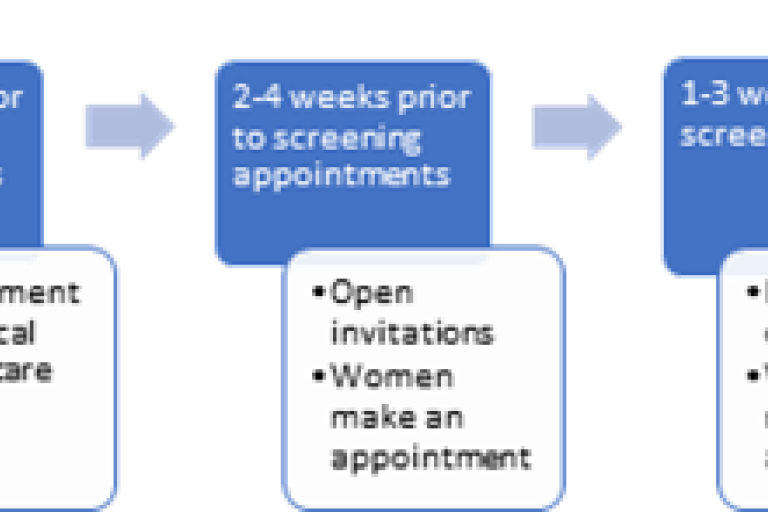Those at Risk
Early detection and diagnosis of breast cancer significantly improves the prognosis. In 2019, 65% in North Tyneside being diagnosed at Stage 1 or 2, likely due to the breast cancer screening programme.
However, uptake for screening varies across society, with higher uptake among white women, and less socioeconomically deprived communities. White women are more likely to be diagnosed with breast cancer than black or ethnic minority women. This may in part be due to lower screening uptake amongst women from BAME communities than their white counterparts. Nationally evidence suggests that in general, lower socioeconomic status is associated with lower screening uptake, and there are approximately 14% fewer cases in more deprived communities compared to more affluent communities.
Risk factors for breast cancer include alcohol misuse and (postmenopausal) obesity , which are both known to be more prevalent in communities with higher deprivation. Therefore, increasing uptake in these communities will be important in reducing health inequalities.
The National Breast Cancer Screening Service

The NHS England commission the national breast cancer screening service (NBCSS) is to be delivered by the Newcastle upon Tyne Breast Screening Service for Newcastle upon Tyne, Northumberland, North Tyneside, North Cumbria and Derwentside. The Breast Screening Service has three mobile units which travel across the rest of the region. A mobile unit is situated within North Tyneside approximately every 3 years, remaining in situ long enough to ensure 70% of the eligible population are screened.
However, while the incidence of breast cancer increases, the uptake of screening is reducing, with a 2% reduction in uptake between 2010-2019 across England and a 3% decrease in North Tyneside. Delays and challenges due to the pandemic led to more than a 10% reduction in screening uptake in 2020-21 than in previous years.
Therefore, increasing uptake of the breast cancer screening programme is crucial for earlier detection and diagnosis of breast cancer.
